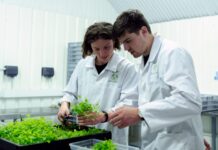Climate change refers to long-term shifts in global or regional climate patterns, primarily attributed to human activities such as burning fossil fuels, deforestation, and industrial processes that release greenhouse gases into the atmosphere. These gases, including carbon dioxide (CO2), methane (CH4), and nitrous oxide (N2O), trap heat in the Earth’s atmosphere, leading to a warming effect known as the greenhouse effect. Climate change impacts various aspects of the Earth’s systems, including temperature patterns, weather events, sea levels, and ecosystems.
At its core, Climate change is driven by the accumulation of greenhouse gases in the atmosphere, which alter the planet’s energy balance and contribute to rising temperatures. The release of these gases from human activities, such as burning fossil fuels for energy and transportation, is the primary driver of current global warming trends. As concentrations of greenhouse gases continue to increase, the Earth’s climate system responds with shifts in temperature, precipitation patterns, and the frequency and intensity of extreme weather events.
Climate change is a complex and multifaceted issue with far-reaching consequences for both natural and human systems. Key aspects of Climate change include:
Greenhouse Gas Emissions: The primary contributors to Climate change are greenhouse gas emissions from human activities. Carbon dioxide is released from burning fossil fuels (coal, oil, and natural gas) for electricity generation, heating, transportation, and industrial processes. Methane emissions arise from livestock agriculture, landfills, and natural gas production. Nitrous oxide emissions result from agricultural practices and industrial activities. These gases persist in the atmosphere for varying lengths of time, contributing to long-term changes in global temperatures.
Global Warming: Global warming refers to the observed increase in average global temperatures over time. Since the Industrial Revolution in the mid-19th century, global temperatures have risen significantly due to human activities. This warming trend is evident in temperature records, melting ice caps and glaciers, and shifts in seasonal patterns. The Intergovernmental Panel on Climate Change (IPCC) reports that global temperatures have increased by approximately 1.1 degrees Celsius (2 degrees Fahrenheit) since pre-industrial times, with significant implications for ecosystems and human societies.
Impacts on Ecosystems: Climate change poses profound risks to terrestrial and marine ecosystems. Rising temperatures affect biodiversity by altering habitats and migration patterns of species. Shifts in precipitation patterns can lead to droughts, wildfires, and changes in vegetation cover. Ocean warming and acidification threaten marine ecosystems, coral reefs, and fisheries, impacting marine biodiversity and coastal communities that rely on marine resources for livelihoods and food security.
Sea Level Rise: As global temperatures rise, thermal expansion of seawater and melting ice sheets and glaciers contribute to sea level rise. Coastal communities are increasingly vulnerable to flooding, storm surges, and saltwater intrusion into freshwater sources. Low-lying island nations and densely populated coastal regions face escalating risks from inundation and coastal erosion, necessitating adaptation measures such as coastal defenses, land use planning, and infrastructure resilience.
Extreme Weather Events: Climate change amplifies the frequency and intensity of extreme weather events, including heatwaves, hurricanes, heavy rainfall, and floods. These events pose immediate risks to human health, infrastructure, agriculture, and economies. Heatwaves can exacerbate heat-related illnesses and mortality, particularly among vulnerable populations. Intense storms and flooding can cause widespread damage to homes, businesses, and critical infrastructure, disrupting communities and recovery efforts.
Mitigation Strategies: Mitigating Climate change requires reducing greenhouse gas emissions and enhancing carbon sinks that absorb CO2 from the atmosphere. Mitigation strategies include transitioning to renewable energy sources (solar, wind, hydroelectric), improving energy efficiency in buildings and transportation, promoting sustainable land use practices, and implementing carbon capture and storage technologies. International agreements such as the Paris Agreement aim to limit global warming to well below 2 degrees Celsius (3.6 degrees Fahrenheit) above pre-industrial levels, with efforts to pursue efforts to limit the temperature increase to 1.5 degrees Celsius (2.7 degrees Fahrenheit).
Adaptation and Resilience: Adaptation strategies seek to build resilience to Climate change impacts and protect vulnerable communities and ecosystems. These strategies include enhancing disaster preparedness and response measures, improving water resource management, diversifying agricultural practices, restoring degraded ecosystems, and integrating Climate change considerations into urban planning and infrastructure development. Adaptation efforts aim to reduce risks and enhance adaptive capacity in the face of ongoing Climate change impacts.
International Collaboration and Policy: Addressing Climate change requires coordinated efforts at local, national, and international levels. Governments, businesses, civil society organizations, and individuals play crucial roles in implementing Climate change policies, fostering innovation, and mobilizing resources for mitigation and adaptation initiatives. International collaborations facilitate knowledge sharing, technology transfer, and financial support to support Climate action efforts in developing countries and vulnerable regions.

















